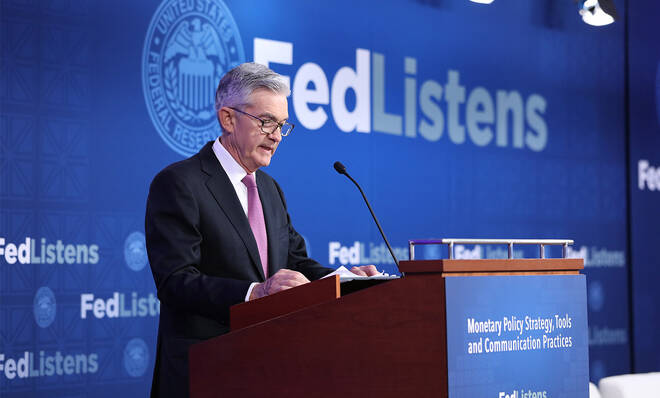Advertisement
Advertisement
Will Chair Powell add to the List of FOMC Disappointments?
By:
Global recession fears will continue to peak and trough in the coming months, and I expect the USD to be highly reactive.
But in terms of importance, and accounting for the FX market’s mercurial mood swings, the most critical variable in the US dollars positive expression is growth in the rest of the world and particularly in China.
In polar opposite to last year’s economic momentum and interest rate mosaic, the US ordinals are converging with the rest of the world Still; there has been no reversal in US dollars fortune, merely a slowing of last year’s momentum.
In this scenario, we continue favouring long USD vs a basket of Asia FX with CNH and KRW as our most absolute commitment while opportunistically adding to Aussie shorts despite moderating expectations for a July rate cut.
Given the market rate curve pricing, the largest tail risk post-FOMC is for a less dovish Fed, which would dent equity sentiment, weaken the high beta currencies and weigh negatively on Asia high yielders.
The Euro
The Euro remains prone on several fronts, namely Brexit, China and auto tariffs. So the weaker China IP data and US retail sales rebounding, the Euro recalibrated aggressively lower.
Despite a relatively large sell-off by today’ G-10 standards, I’m biased to remain short EUR due to several headwinds.
- China data should continue to weaken, which will have an outsized negative impact on the Eurozone.
- Trump appears to be turning his vitriol back towards Europe as he considers sanctions to block Nord Stream 2 and even move US troops based in Germany to Poland.
- Auto tariffs should be on everyone radar although timing Trumps next implosion is difficult to predict.
- The ECB continues to express a dovish tone publicly.
- Weaker US dollar narrative has just about run its course.
After the bounteous US retail sales print, and despite a possible overshoot lower on the Euro there is still room to walk back some of the markets rate cut insanity, so the greenback should remain supported.
Asia FX
While some would still argue the dollar is expensive against the Euro, it’s still cheap against FX Asia in our view.
EM Asia FX View
Its an extremely toxic environment for Asia FX as the trade war narrative has been getting rapidly worse.
Worsening trade tensions should lead to a Fed rate cut, and in turn, this will provide more policy wiggle room for EM Asia central banks to be more aggressive with their macro policy buffer.
Given the struggling regional economic backdrop, we’re anticipating a stronger monetary stimulus response for China and Korea and continue to favour long USD positions against both currencies.
Given the Ringgit’s approximately 60% correlation to the Yuan weakness we see the Ringgit moving closer to the 4.25 level on trade war escalation
We think the Philippines peso and the Indonesian rupiah will crumble if the BSP and BI both expedite their rate cut cycles matching the Fed on the escalating trade war scenario.
My view on the rate curve
Maybe due to interest rates being so low, but from my seat, a market only pricing incremental .25 bp cuts is nowhere near as dovish as the news flow portends. When it comes to Fed policy, historically anyway, it’s the stairs up but the elevator down when it comes to Fed interest rate policy.
I think we will see a rate cut at some juncture this year, but I think the market in its infinite wisdom continues to read too much into every nugget and has misread the NFP print in my view. One jobs report is unlikely to sway them to cut rates this week or even in July. But, if a trend begins to emerge, it will force their hand later this summer. Against market consensus, I think the Feds will hold off until September. There a straightforward NFP correlation between the aggregate of a rolling four-month cumulative miss relative to expectations which suggest the current rolling cycle is nowhere near harmful enough to support the dovish market’s expectations.
This article was written by Stephen Innes, Managing Partner at Vanguard Markets LLC
About the Author
Stephen Innescontributor
With more than 25 years of experience, Stephen Innes has a deep-seated knowledge of G10 and Asian currency markets as well as precious metal and oil markets.
Advertisement
